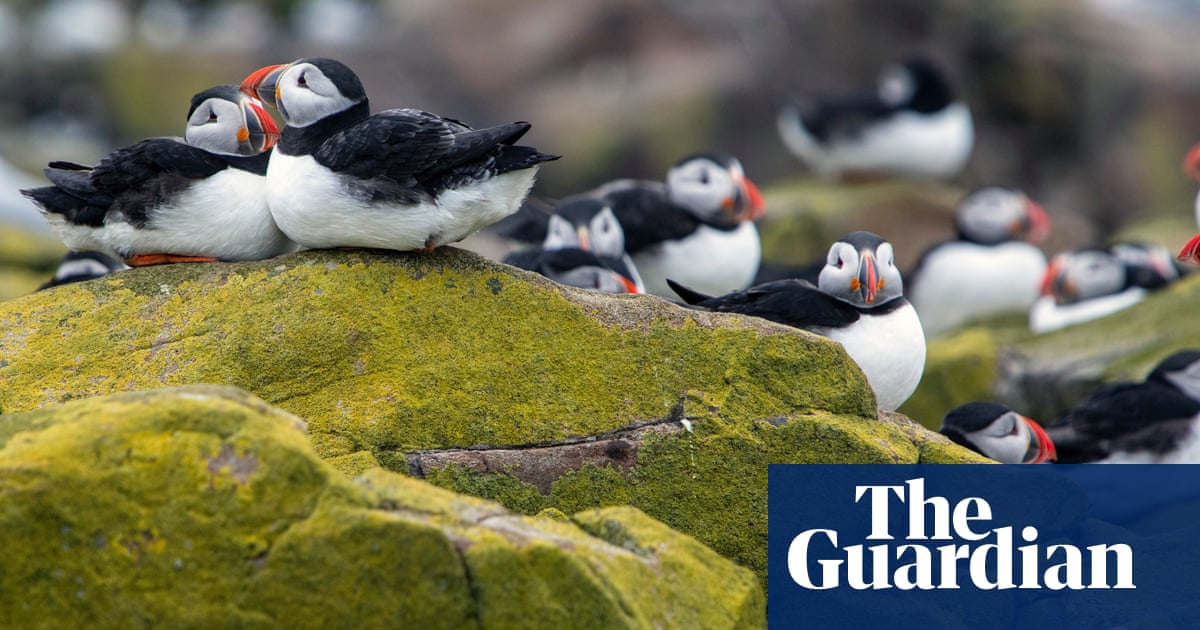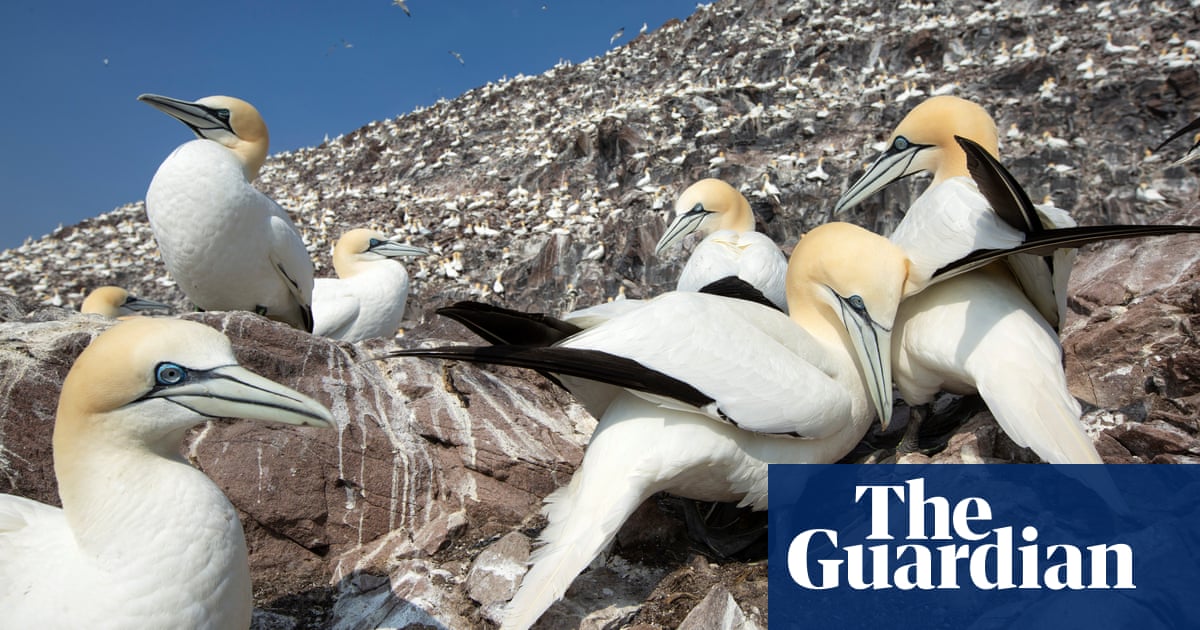
The Farne Islands will not open to visitors this spring in anticipation of bird flu once again ravaging breeding seabird colonies, after an “unprecedented” spate of deaths last year.
The rocky outcrop of islands off the coast of Northumberland has been looked after by the National Trust since 1925 and there are no previous records of so many endangered seabirds dying at once. More than 6,000 carcasses were picked up last year, which is believed to be the tip of the iceberg compared with how many birds would have died in total.
Guillemots were worst affected, with more than 3,500 carcasses collected, followed by more than 800 kittiwakes. Rangers are particularly concerned about the small but vulnerable population of sandwich terns. There are an estimated 330 pairs nesting, and last year the bodies of about 300 adults and chicks were collected.
“We suspect bird flu is going to hit us in a similar way to how it did last year,” said Harriet Reid, lead ranger for the Farne Islands, which are a National Nature Reserve on account of their remarkable seabird colonies. “Many of the species we care for are rare and struggling already due to climate change. Therefore, we want to try to mitigate the impact of this disease by limiting human access, and limiting disturbance,” she said.
The National Trust islands are home to about 200,000 seabirds, including puffins, arctic terns, razorbills and shags. Most will come back to the islands in May and June. There have been some dead gulls and eider ducks on the island within the small overwintering population, although it has not been confirmed if they died of bird flu.
For Inner Farne, the season typically runs from 1 April until the end of September, and for Staple Island it starts in May and finishes at the end of July. About 45,000 visitors land on the islands each year. Visitors will still be able to do tours around the islands and there is a chance they could open for visitors later in the season, the National Trust said.
“I can’t see any other virus, issue or stormy weather that has ever hit the islands like this – the prospect of picking up 6,000 carcasses again is not great,” said Reid. “It’s never nice to think about bird flu and picking up dead birds. But I feel better about going into it this year because we know what it looks like, we know what is required to pick up bodies, and we’ve had more time to plan. Part of the islands being restricted for landings makes it easier for us to carry out that management.”
In the UK, the effects of avian flu started to be felt in the northernmost islands of Scotland in spring 2022, spreading the length of the country, with colonies of nesting seabirds the worst hit. Colonies across Europe, North and South America, and Asia have all been badly hit, with an unknown number of wild birds believed to have been killed. It is the worst avian flu outbreak recorded across Europe and America.
Rangers are hoping to create the best nesting habitat possible on the island and will be monitoring species to see how many return after last year’s outbreak. Ben McCarthy, head of nature conservation and restoration ecology at the National Trust, said: “The recent impact of avian influenza on our wild birds is unprecedented. As threatened seabirds return to their breeding sites they become more susceptible to infection due to the high densities in these spectacular colonies.
“We are actively participating in international research efforts to understand the long-term impacts of this pernicious disease and are doing everything we can to mitigate the impact on the Farne Islands and our other seabird sites.”
The National Trust is not planning to close any other reserves as a result of avian influenza. The RSPB, NatureScot and the Wildlife Trusts do not currently have any closures planned either.
The public should not touch dead or dying birds, and should report suspected bird flu cases to Defra on 03459 33 55 77.












